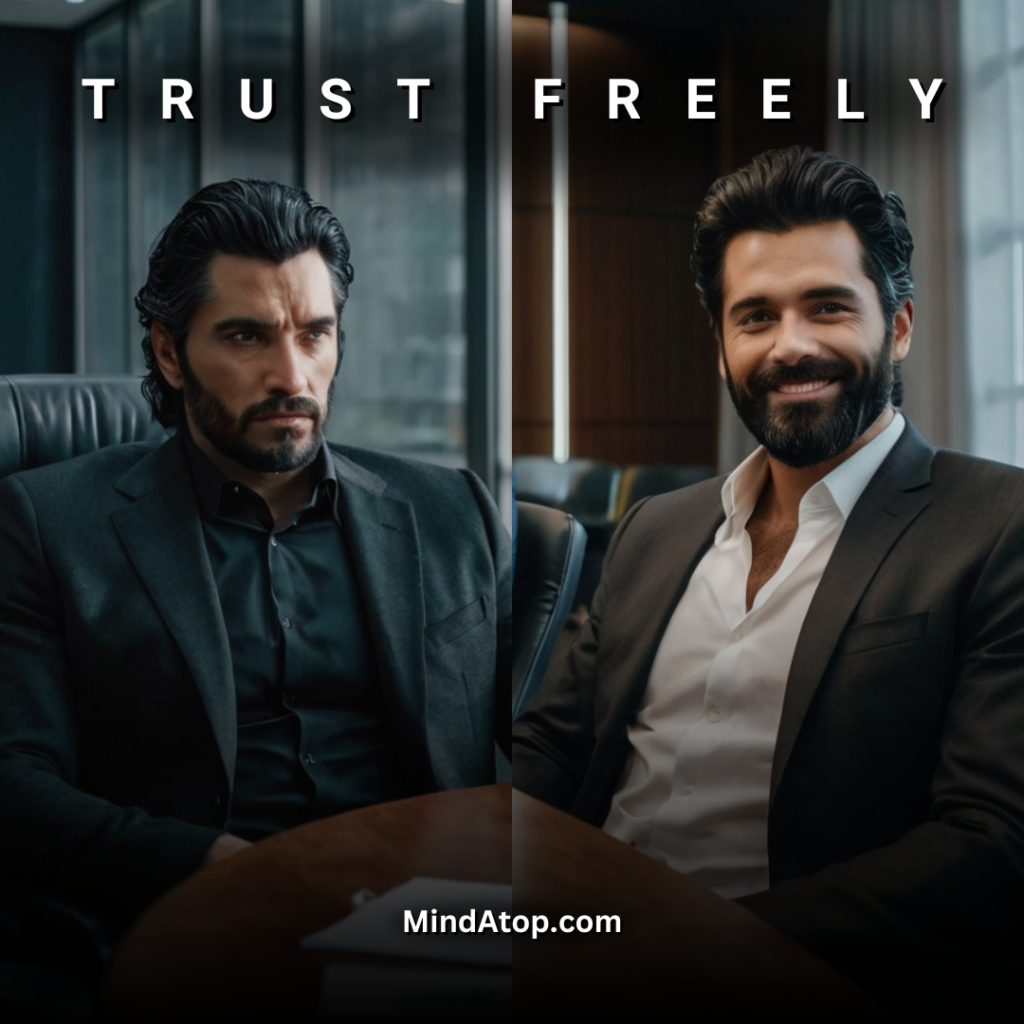Gaurav had built his business empire through sheer grit and tireless work, but also through an iron-fisted approach. His motto was simple: control or lose. And for years, that approach seemed flawless. But as his business empire grew, so did his insecurities—the fear of being outmanoeuvred, the dread of falling from the top. His once-unbreakable confidence was now a web of tension, spun tight by anxiety and the unrelenting need to dominate.
Today, the stakes were higher than ever. He was on the brink of a deal that could push his company onto the global stage. The foreign partners he was set to meet represented a renowned conglomerate with the potential to change everything for him. The morning of the meeting, Gaurav found himself pacing in his office, his heart pounding and his palms damp. I have to control this. I can’t afford to lose to anyone—especially not Dinesh.
In another corner of the city, Dinesh, his competitor, was preparing for the same meeting with a calm, almost serene demeanour. Unlike Gaurav, Dinesh believed in balance and fairness. His success came from cultivating trust, not imposing his will. For him, each partnership was a collaborative journey, not a battle. As he sat sipping tea, reading through the contract notes, he felt no need to “gear up” for a power play. He simply wanted to connect, to discuss possibilities with openness.
The two rivals arrived at the conference room within moments of each other. Gaurav, dressed in an immaculate suit, strode in with a brisk, forceful energy. He barely acknowledged anyone as he took his seat at the head of the table, radiating an air of control and importance. Dinesh, meanwhile, gave a warm smile to each person in the room, greeting the foreign partners with a slight bow and taking his place with quiet confidence.
The meeting commenced, and Gaurav was the first to speak. He immediately launched into a presentation, raising his voice to command attention, outlining stringent terms, and delivering each point with an unmistakable air of superiority. He barely paused to breathe, let alone to allow anyone else to interject.
“This deal must benefit us predominantly,” he declared, pointing at the slides with sharp, aggressive gestures. “After all, our experience is unmatched, and this partnership would serve you as much as it does us.”
The atmosphere turned tense. The foreign partners exchanged glances, taken aback by Gaurav’s approach. But he didn’t notice; in his mind, he was seizing control, steering the meeting the way he always had—with dominance and aggression. His voice echoed through the room, filling it with a sense of suffocating pressure.
Then, Dinesh cleared his throat. With a calm smile, he took his turn to speak. He looked around the table, making eye contact with everyone, including Gaurav. His words were soft but steady, and his tone was warm, inviting.
“Thank you, Gaurav, for setting the stage,” he began politely. Then he turned to the foreign partners. “I believe we can create something mutually enriching here. Growth, in my view, comes when we’re lifting each other up, and that’s the kind of partnership I’d like to discuss.”
Dinesh’s approach was like a breath of fresh air. He spoke with respect, asking questions and listening carefully. He proposed terms that were balanced and fair, emphasizing that he was as invested in the foreign partners’ success as his own. Instead of imposing demands, he responded to their concerns and encouraged open dialogue. The tension in the room began to dissolve, replaced by a sense of comfort and collaboration.
Gaurav watched in silence, his initial confidence beginning to waver. For the first time, he saw the effect of Dinesh’s method—a graceful strength that didn’t rely on control. The foreign partners leaned in, their expressions softening as they nodded at Dinesh’s words. Gaurav felt a knot forming in his stomach, a fear he couldn’t quite name.
After the meeting concluded, Gaurav’s mind raced. Days later, he received the news he had dreaded: the foreign company had chosen Dinesh over him.
It was a crushing blow. How could I lose? Gaurav thought, anger and disbelief clouding his mind. Desperate for answers, he called one of the representatives. The response stunned him: “Your approach felt like a power struggle, Gaurav, and we sensed your need to control everything. Dinesh made us feel like equals, like partners. That’s what we value.”
The line went silent, and Gaurav sat still, the weight of his failure settling on his shoulders. For years, he had believed that control was his strength. But now, in this raw moment, he began to see that his need to dominate had blinded him, held him back. His mind reeled as he reflected on Dinesh’s calm, grounded confidence, a stark contrast to his own forced authority.
Then, something unexpected happened. In the quiet of his office, a sense of relief washed over him, softening the sharp edges of his disappointment. The realization hit him like a gentle wave: for the first time in years, he didn’t have to control everything. He didn’t have to fight or struggle to prove himself.
It was as if a weight had lifted from his chest. He took a deep breath, savouring the newfound lightness within him. He had lost a deal, yes, but he had found something more valuable—a release from the fear that had gripped him for so long. Control, he realized, was not strength; it was a cage. And by letting go, he felt… free.
In that moment, Gaurav knew that this loss was actually a
gift. He would build his business not through dominance, but through trust. His
lips curled into a small smile as he looked out the window, watching the city
lights flicker. He was ready for a new journey, one where he would embrace
partnerships as they were meant to be—not as battles to be won, but as
connections to be cherished.

